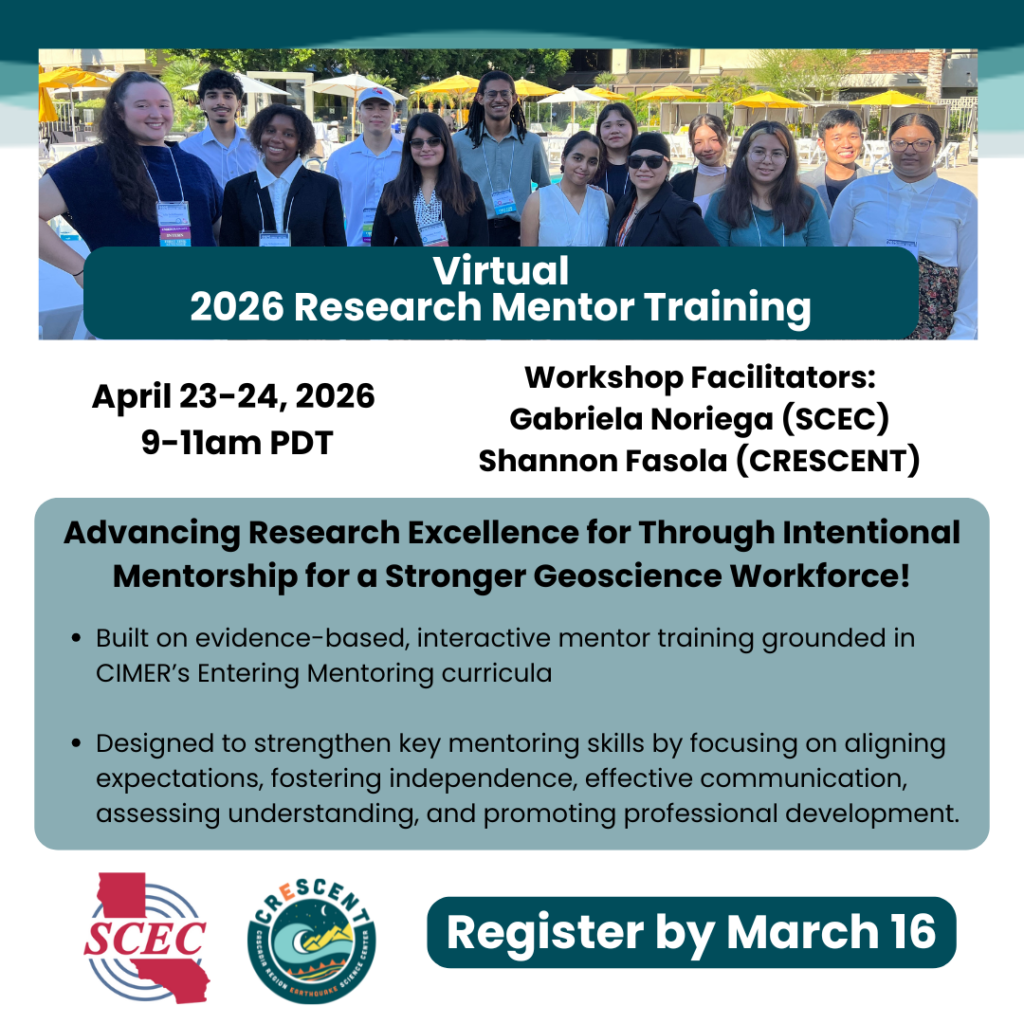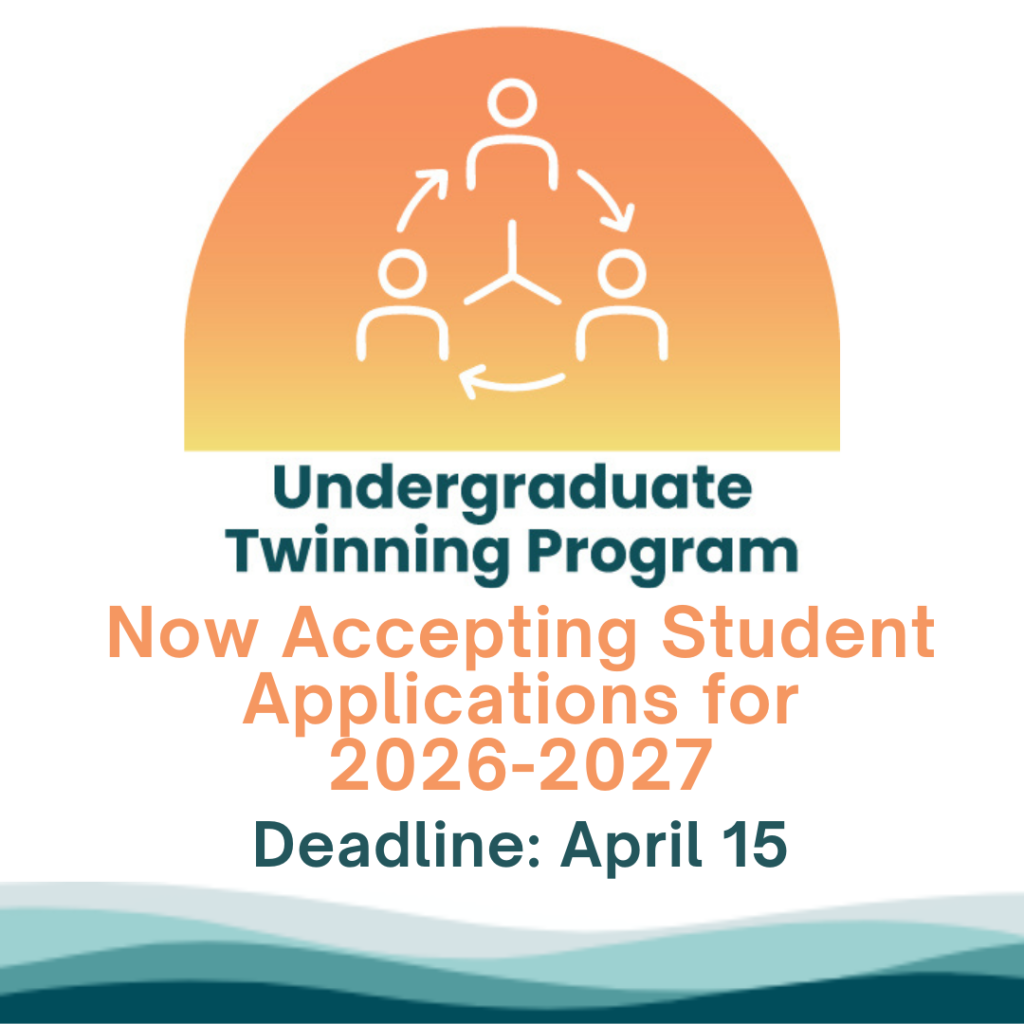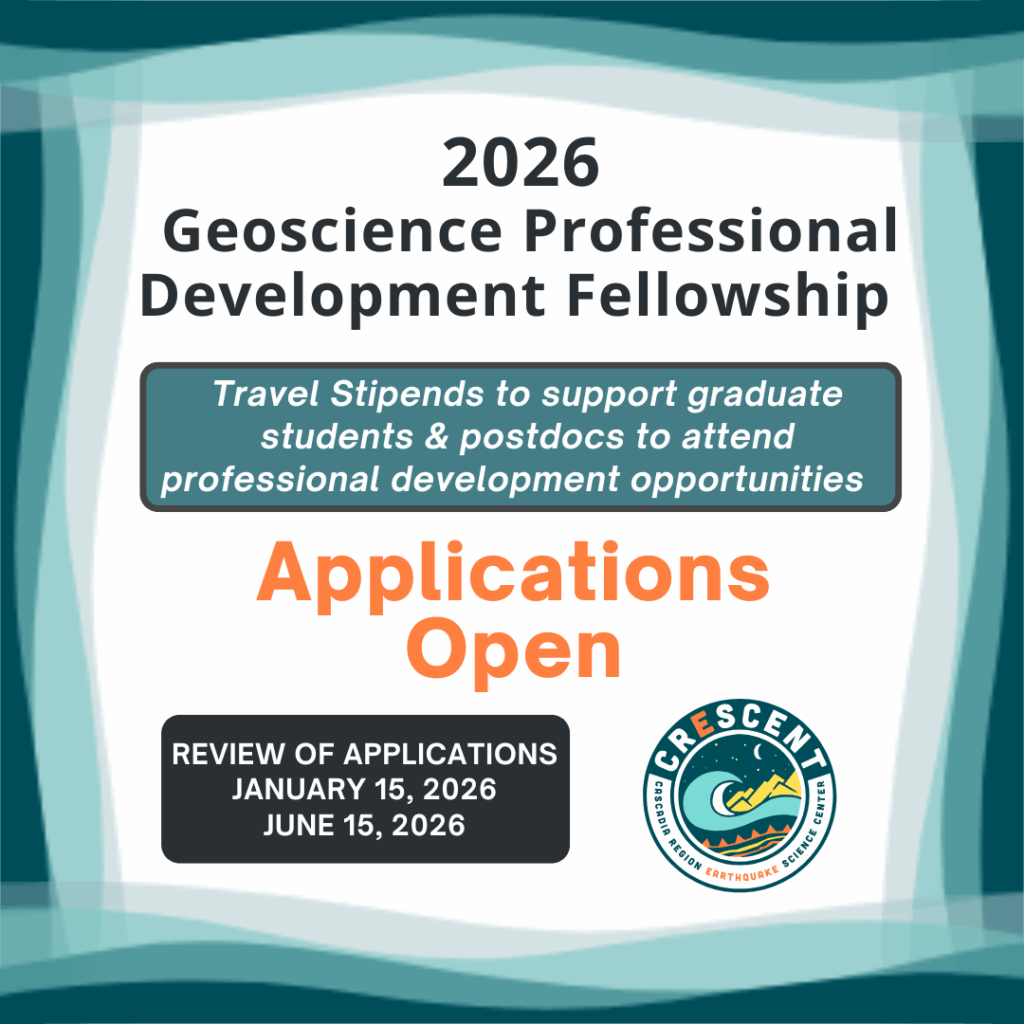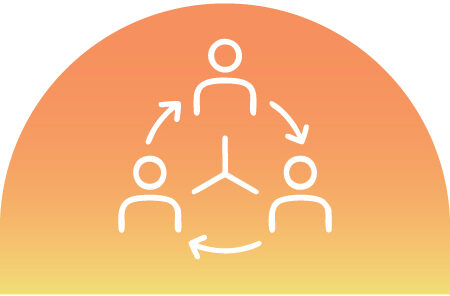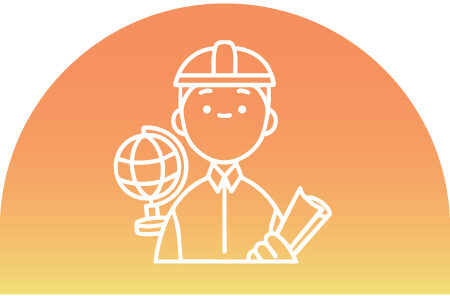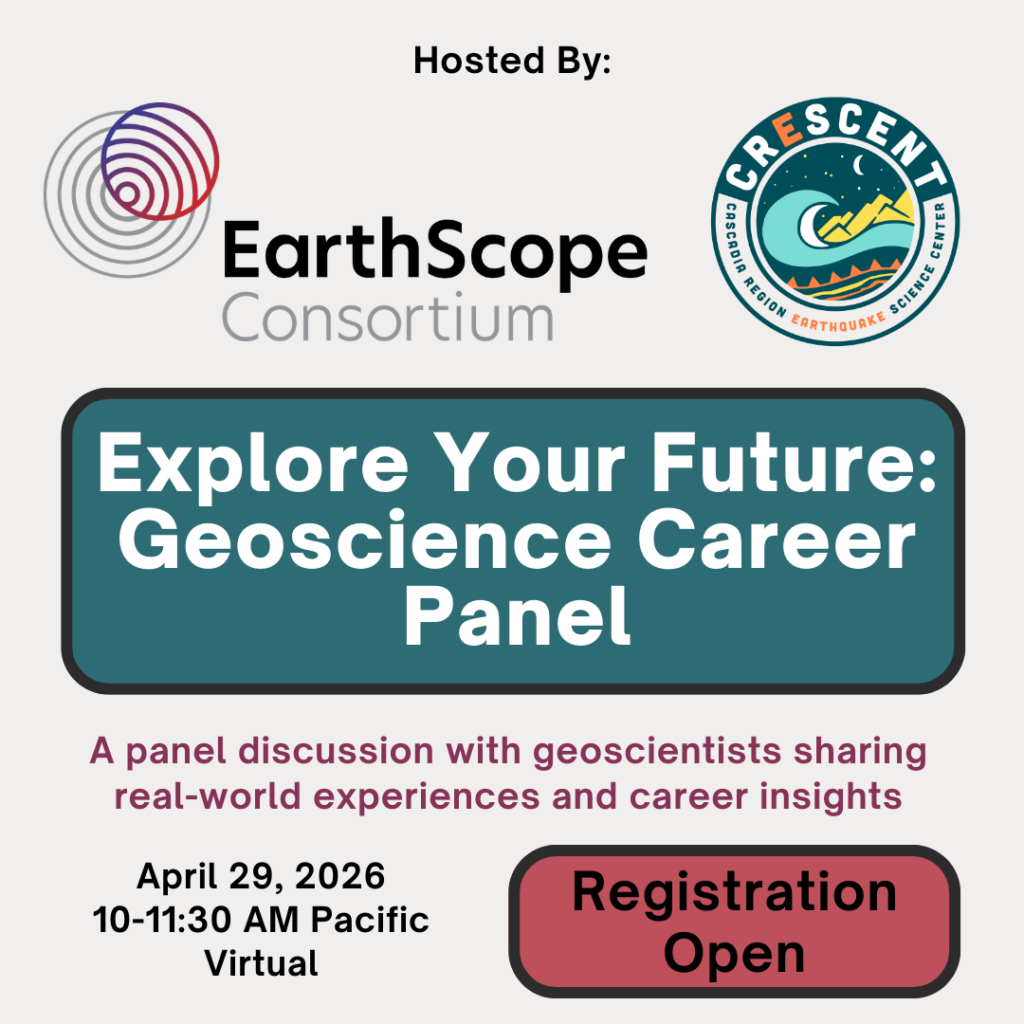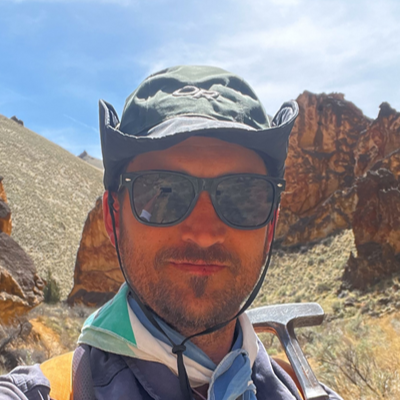
Geoscience Education and Inclusion
Diversifying and training the next generation of geoscientists
Mission Statement
Geoscience Education and Inclusion

Progress on the challenges facing earthquake hazards research, both in the short- and long-term, requires concerted focus on preparing and diversifying the next generation workforce. The Geoscience Education and Inclusion initiative seeks to build that capacity by providing research and training opportunities for aspiring geoscientists from minoritized and other underrepresented groups. Research and training experiences and summer schools create opportunities for students to participate in subduction zone science, to build skills essential to research, and to position themselves for meaningful careers in science and beyond.
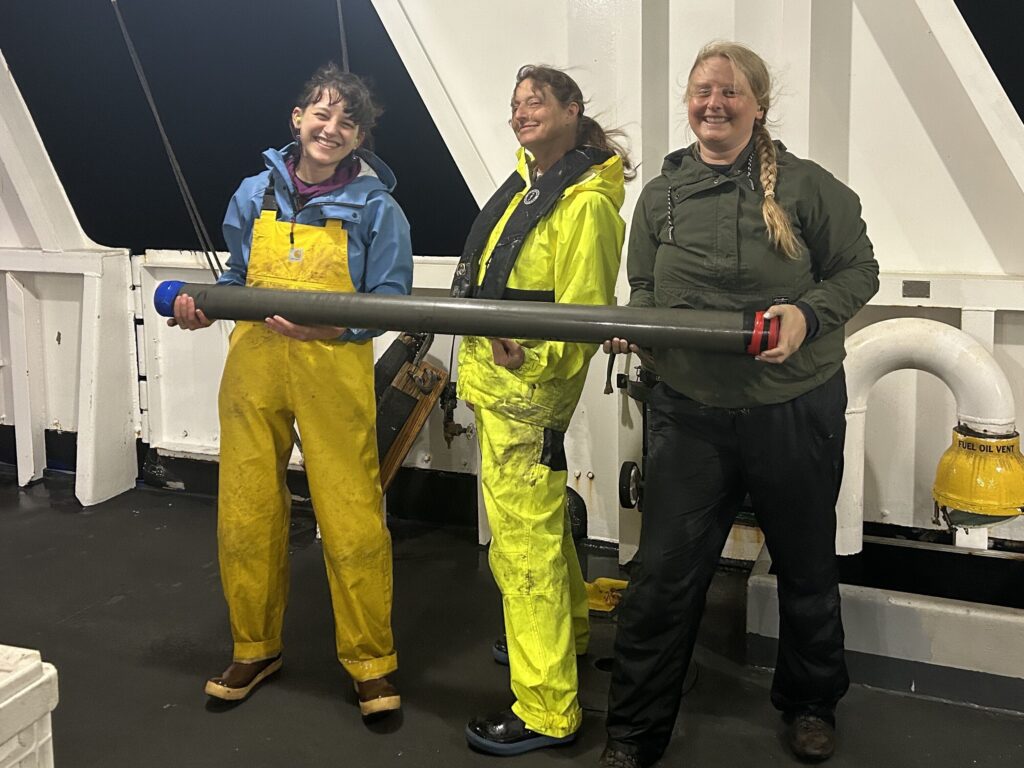
High School

To substantively increase the representation of underrepresented groups in Earth science and prepare the geo-workforce of the future, we seek to engage students before they reach college.
CRESCENT is collaborating with the University of Washington to engage those students through the Cascadia Culture & geoScience Exchange (CCASE) Program. The 2024-2025 CCASE Program is partnering with the Quileute Tribal School and Neah Bay High School to exchange culture and geoscience with the Quileute and Makah Tribes of Washington state. In the future, we aim to expand CCASE to schools in Oregon and beyond!
Reach out to GEI Program Manager Shannon Fasola (sfasola@uoregon.edu) to get involved with CRESCENT in High School STEM. We welcome invitations for anything from guest speakers in your classroom to collaborations with new or existing programs.
Major Activities
Undergraduate

In the Pacific Northwest, geohazards afford the opportunity to use place-based research to engage a diverse undergraduate cohort. The geographic scope of the hazard ranges from local to regional and thus creates an ideal opportunity with a high likelihood of success for an ambitious skills and mentorship program that targets a diverse pool of undergraduates. CRESCENT has two programs designed to engage undergraduate students in research and to catalyze participation from underrepresented groups: (i) an innovative, year-long Undergraduate Twinning research program and (ii) a pilot “Cores to Code: An Earthquake Geology Summer School” designed to provide a research experience that blends fieldwork and in-lab computational modeling. Stipends allow students to focus on research while pursuing a degree. Both programs include significant cohort-building and professional training activities.
Major Activities
Graduate and Early Career

To achieve our vision of a diverse future geoscience workforce, it is critical to support and promote the professional growth of graduate students and postdoctoral scholars. CRESCENT offers (i) fellowships to graduate students or postdoctoral scholars for travel to workshops or conferences focused on professional development and (ii) technical short courses delivered by community scientists who are experts in the subjects and who are participating in the Working Groups and Special Interest Groups.
Major Activities
We Appreciate You!
CRESCENT Educational Partners

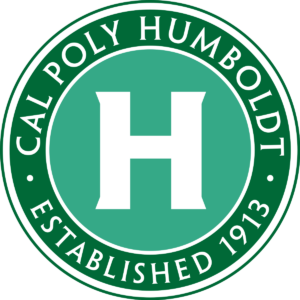



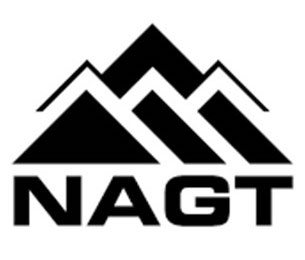

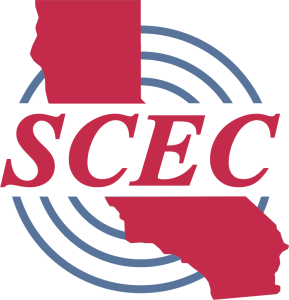
Meet The Team
Geoscience Education and Inclusion Committee Leadership

The Geoscience Education and Inclusion Committee coordinates and oversees the high school STEM pathways, undergraduate research programs, graduate fellowship and postdoctoral mentoring activities, and technical short courses. Its members are experts in modern pedagogy and ensure that all workforce programs are broadly advertised and accessible to students with diverse backgrounds.
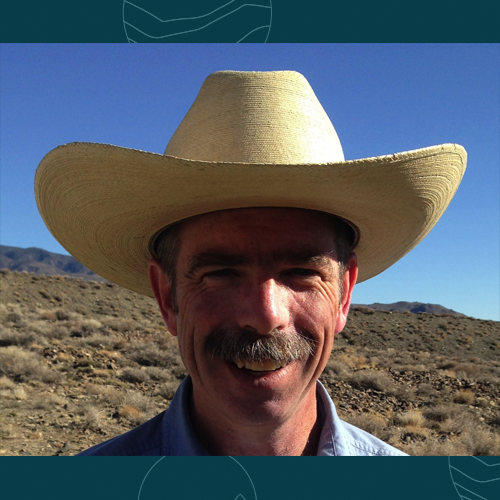
Andrew Meigs
GEI Program Lead
Oregon State University
andrew.meigs@oregonstate.edu
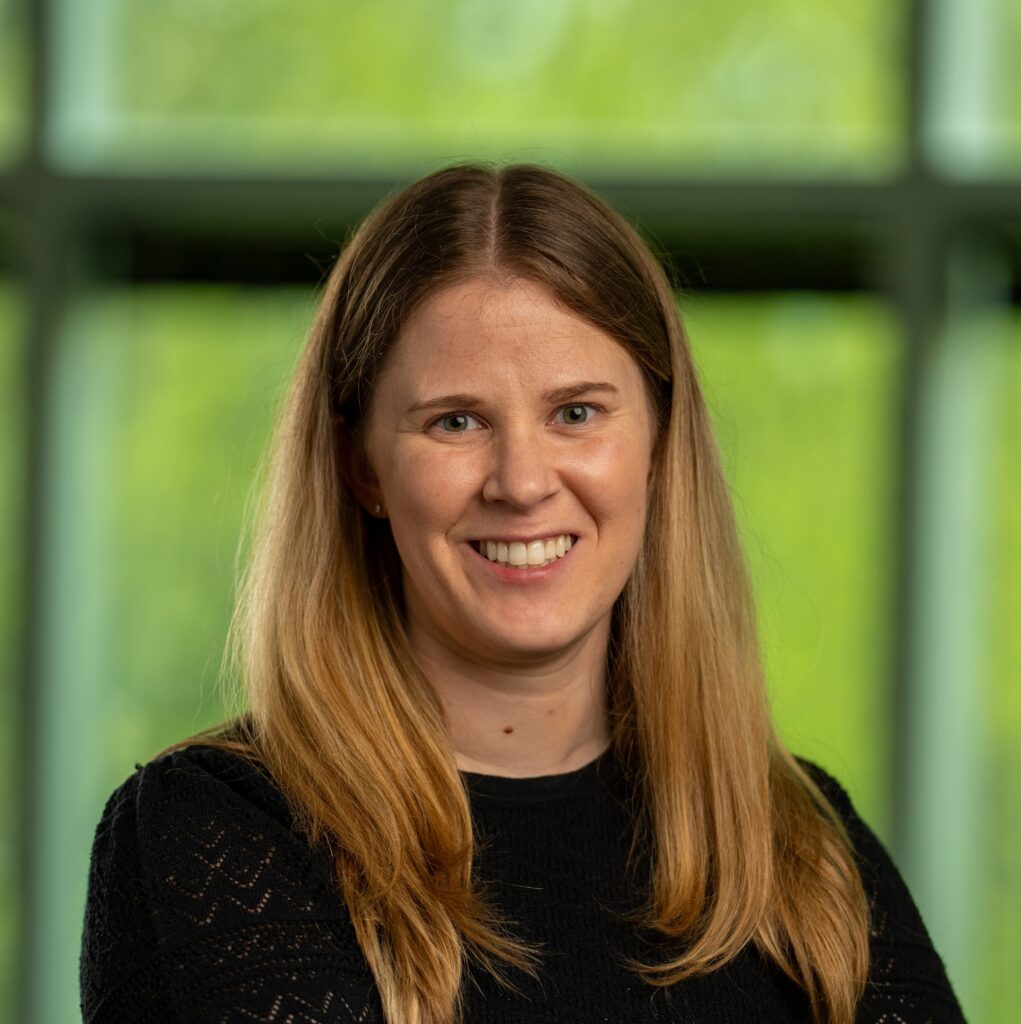
Shannon Fasola
GEI Program Manager
University of Oregon
sfasola@uoregon.edu
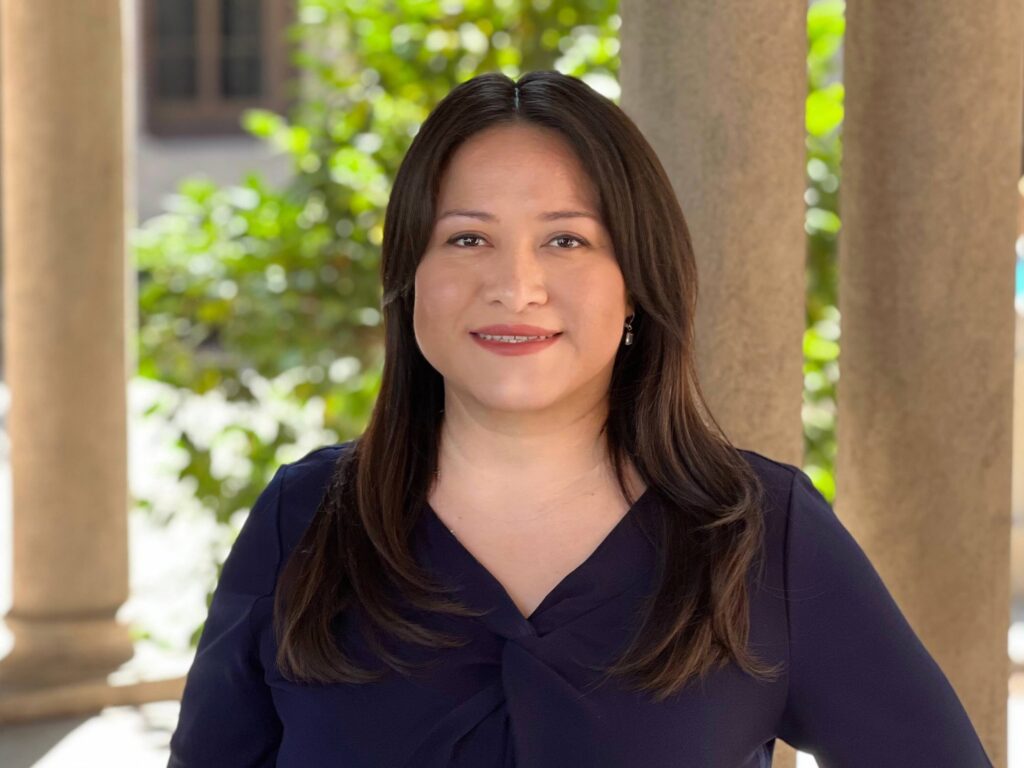
Gabriela Noriega
Statewide California Earthquake Center
gnoriega@usc.edu
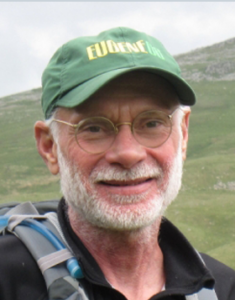
Harvey Kelsey
Cal Poly Humboldt harvey.kelsey@humboldt.edu
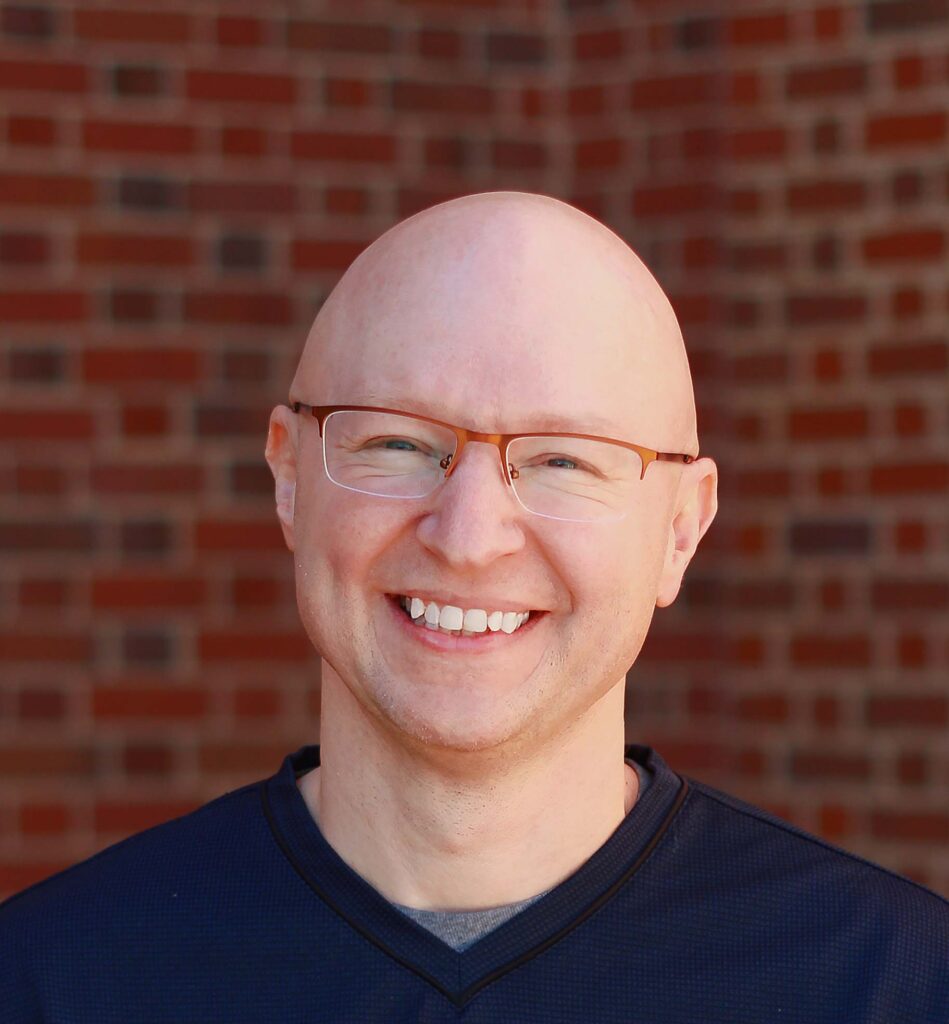
Mike Brudzinski
Miami University
brudzimr@miamioh.edu
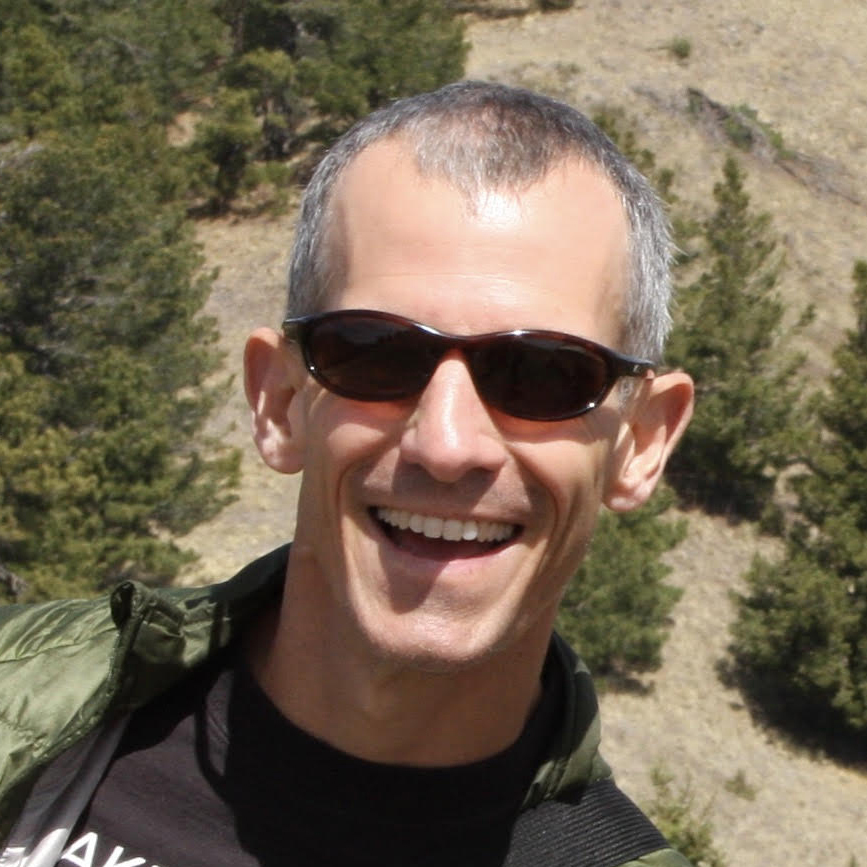
Michael Hubenthal
Earthscope Consortium
michael.hubenthal@earthscope.org
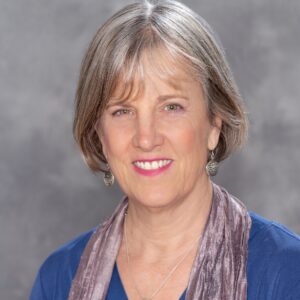
Valerie Sloan
Former Director of the GEO REU Network
valsloan9@gmail.com

